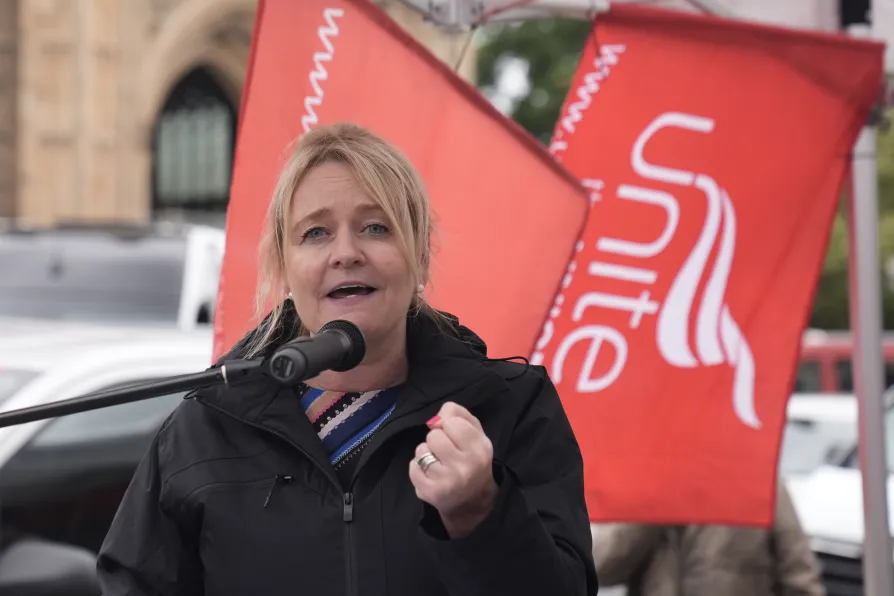Error message
An error occurred while searching, try again later.
 NO MINCING WORDS: Unite's Sharon Graham
NO MINCING WORDS: Unite's Sharon Graham
ENERGY companies made £30 billion in pre-tax profits last year as they enjoyed 23 per cent average profit margins, three times the national average, Unite said yesterday.
The profiteering cost the average British household £500 each — three times larger than the £9.9 billion added on to bills by green levies.
This means profiteering is the main cause behind Britain having the highest energy prices in Europe — which remain 42 per cent higher than four years ago, said Unite.
Unite general secretary Sharon Graham said: “What the Unite energy costs report clearly shows is that households are being fleeced pure and simple.
“The government is turning a blind eye to these excessive profits.
“We need to look at other countries like France and begin to plan to own our own energy.
“Only then can the ever-bulging profits currently going to shareholders be used to keep bills down for households and businesses.”
The report found that while the average profit margin in the sector is 23 per cent, in some areas, especially in the grid, margins stand at a whopping 38 per cent.
It highlighted how some of the world’s wealthiest people and international investors have significant stakes in Britain’s privatised energy system, with foreign states also benefiting — receiving a third of all energy profits.
To end corporate profiteering of the sector, Unite called for energy renationalisation at a book value total cost of £90 billion, beginning with the grid.
It also backed a “truly just transition” for North Sea workers as Britain moves to net zero and for ministers to “properly fund” GB Energy to allow it to fully invest in new generation projects.
End Fuel Poverty Coalition co-ordinator Simon Francis said: “At a time when energy debt is soaring and millions are living in cold, damp homes, it cannot be right that the system continues to prioritise corporate profits over people’s health and well-being.
“Instead of turning a blind eye or listening to the powerful lobbyists calling for a cut to the Energy Profits Levy, ministers must make sure excess profits are clawed back and used to cut bills.”
An Ofgem spokesperson said: “Our priority is ensuring customers pay the lowest price possible for their energy, and that we drive down costs wherever we can. Under the current price cap of £1,755 a year for a typical household, £42 of that is profit – about £3.50 of the average monthly bill. Before the introduction of the cap, this figure could have been as high as £200 per household. “These returns are necessary for the investment required to improve customer service, build vital new infrastructure and avoid a repeat of the situation during the energy crisis where multiple suppliers went out of business leaving all customers to pick up the costs.”
Stuart Dossett, senior policy adviser at Green Alliance, said: “While people are still worried about the cost of living, no stone should be left unturned to reduce energy bills, including the government and energy regulator taking another look at what is a fair return for these companies. It is unfair that companies which produce and supply our energy could be making outsized profits while households and businesses struggle to pay their bills. Meanwhile, the Chancellor also has an opportunity to help in the upcoming budget by removing some levies from electricity bills.”
The Department for Energy Security and Net Zero said: “We don’t recognise these figures — the main reason energy bills remain high is because wholesale gas costs for households remain 75% higher than they were during the year before Russia invaded Ukraine in 2022.”










